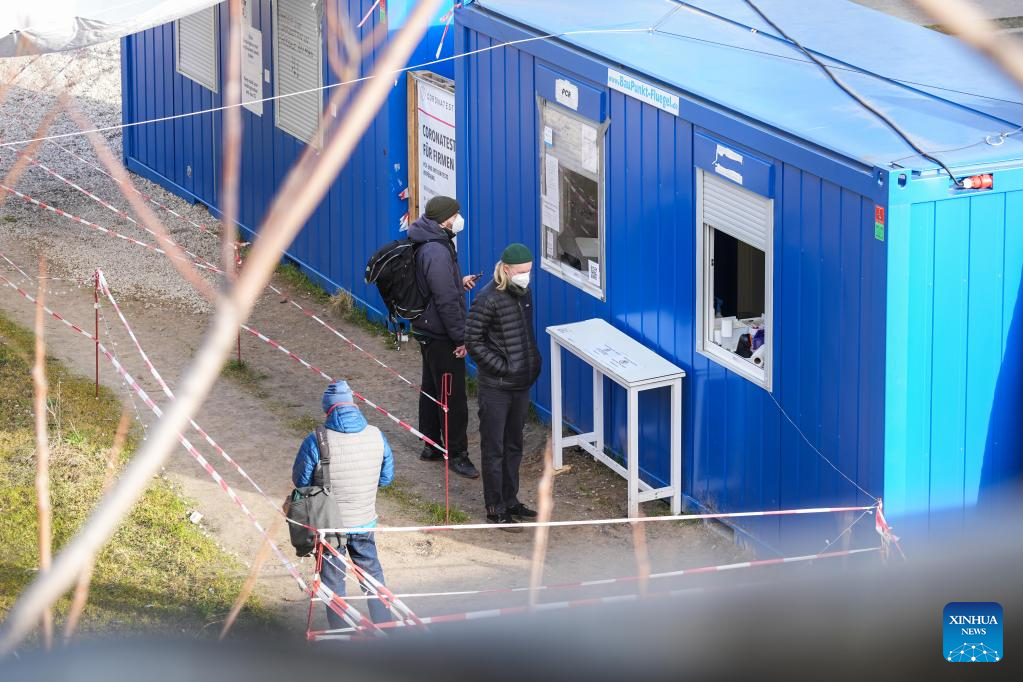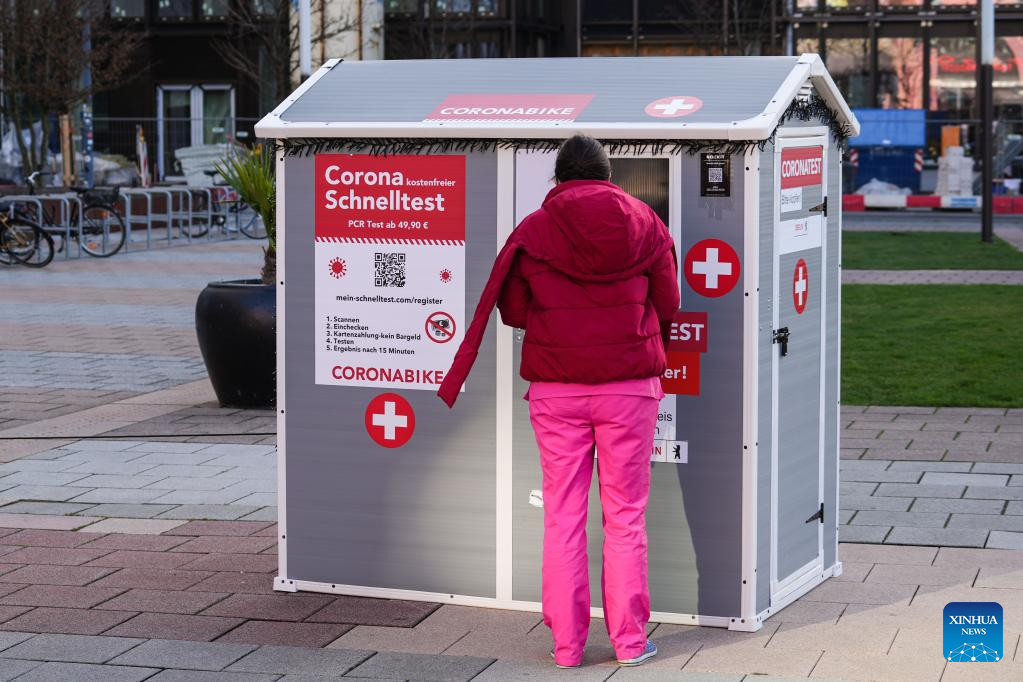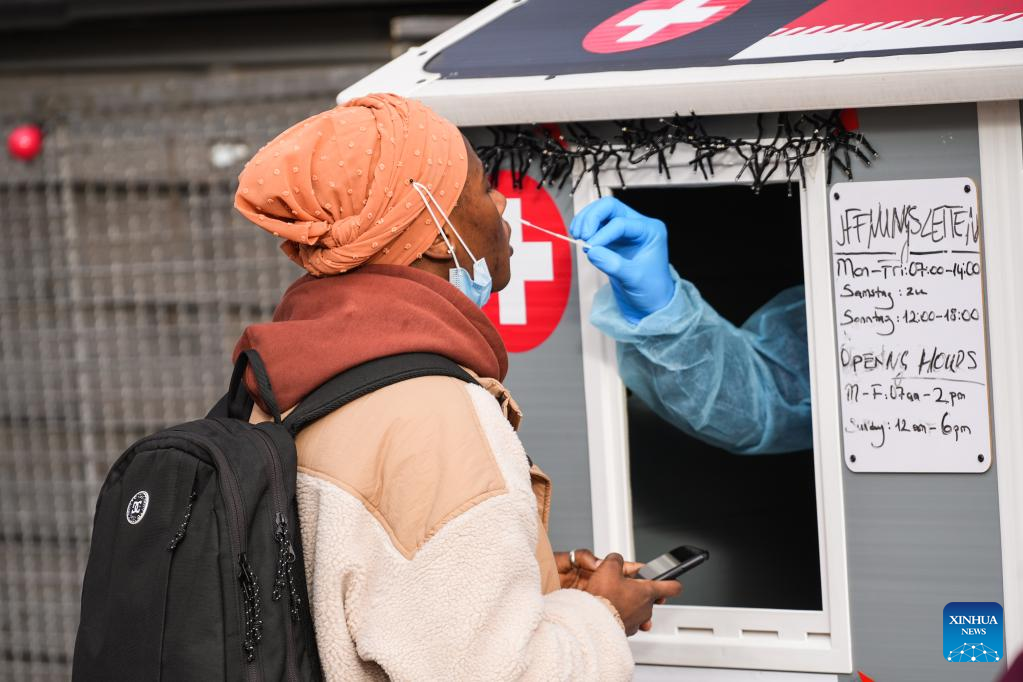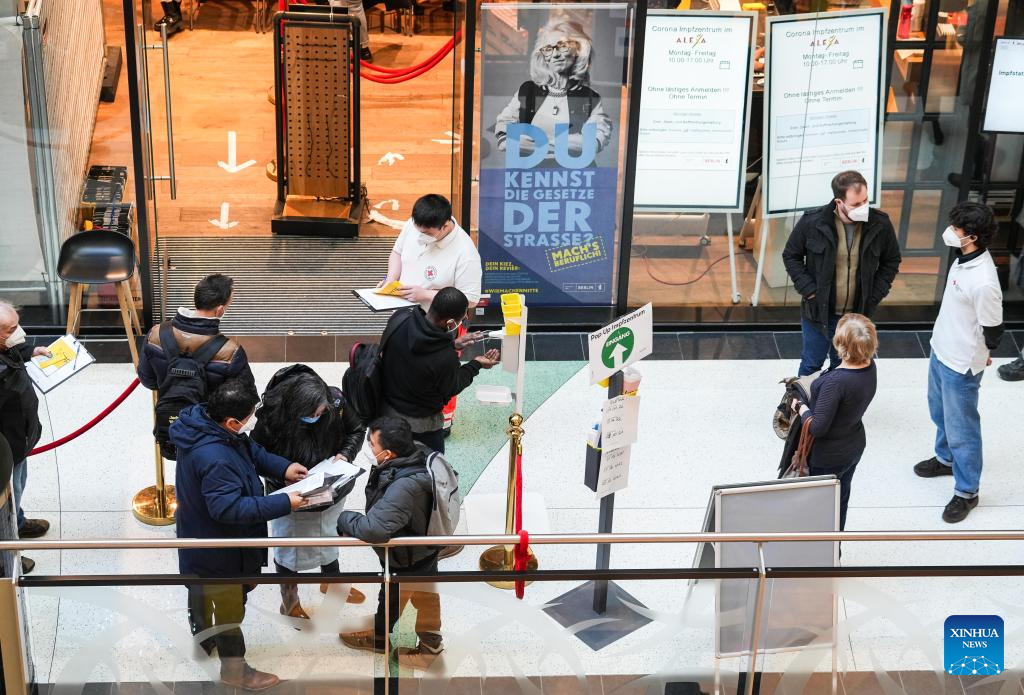
People wait to have tests at a COVID-19 test station in Berlin, capital of Germany, on Jan. 28, 2022. Germany's seven-day COVID-19 incidence rate has continued to surge, hitting a new record of 1,073 infections per 100,000 inhabitants on Friday. The previous day, the number had stood at 1,017.4, the Robert Koch Institute (RKI) reported. (Photo by Stefan Zeitz/Xinhua)
BERLIN, Jan. 28 (Xinhua) - Germany has kept control over the pandemic situation despite the Omicron wave, Minister of Health Karl Lauterbach said at a joint press conference with the Robert Koch Institute (RKI) for infectious diseases on Friday.
"We had expected high case numbers," said Lauterbach, stressing that the current numbers are below those predicted by the RKI.
However, Germany's seven-day COVID-19 incidence rate has continued to surge, hitting a new record of 1,073 infections per 100,000 inhabitants on Friday. The previous day, the number had stood at 1,017.4, RKI reported.
On Friday, 190,148 new cases had been registered in the previous 24 hours, around 50,000 more than a week ago. The day before, two years after the first case of COVID-19 was discovered in Germany, daily infections hit 200,000 for the first time.
"Case numbers continue to rise massively, but in fact they are rising nowhere near as sharply as they could under Omicron," said RKI President Lothar Wieler.
Meanwhile, Lauterbach said that so far, the country has "succeeded in protecting the elderly well" through COVID-19 measures. However, he once again called on the German population to get their booster vaccinations.
Lauterbach is calling for the rapid introduction of a general vaccination requirement in Germany, in order to prevent a "serious relapse" in the fall.
As of Thursday, 73.8 percent of the German population had been fully vaccinated, while 52.2 percent, or some 43.4 million people, had received a booster shot, according to official data. ■

A woman has a test at a COVID-19 test station in Berlin, capital of Germany, on Jan. 28, 2022. Germany's seven-day COVID-19 incidence rate has continued to surge, hitting a new record of 1,073 infections per 100,000 inhabitants on Friday. The previous day, the number had stood at 1,017.4, the Robert Koch Institute (RKI) reported. (Photo by Stefan Zeitz/Xinhua)

A person has a test at a COVID-19 test station in Berlin, capital of Germany, on Jan. 28, 2022. Germany's seven-day COVID-19 incidence rate has continued to surge, hitting a new record of 1,073 infections per 100,000 inhabitants on Friday. The previous day, the number had stood at 1,017.4, the Robert Koch Institute (RKI) reported. (Photo by Stefan Zeitz/Xinhua)

Passengers wearing face masks are seen at Berlin Central Train Station in Berlin, capital of Germany, on Jan. 28, 2022. Germany's seven-day COVID-19 incidence rate has continued to surge, hitting a new record of 1,073 infections per 100,000 inhabitants on Friday. The previous day, the number had stood at 1,017.4, the Robert Koch Institute (RKI) reported. (Photo by Stefan Zeitz/Xinhua)

People wait to receive the COVID-19 vaccine at a vaccination center in a shopping mall in Berlin, capital of Germany, on Jan. 28, 2022. Germany's seven-day COVID-19 incidence rate has continued to surge, hitting a new record of 1,073 infections per 100,000 inhabitants on Friday. The previous day, the number had stood at 1,017.4, the Robert Koch Institute (RKI) reported. (Photo by Stefan Zeitz/Xinhua)



